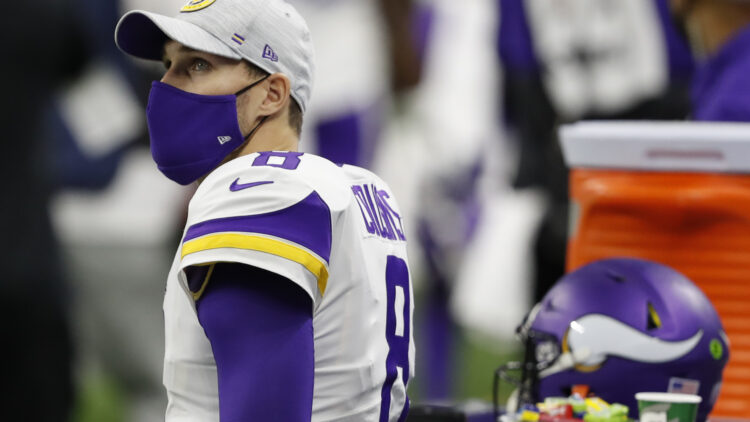Kirk Cousins and That Damn “Against Winning Teams” Narrative

As stated in my previous article, Kirk Cousins is the textbook definition of average when it comes to wins and losses. 51-51-2 is his record in the NFL. Last time, I researched his 13-28-1 record against winning teams. That is his record before the games being played. While I believe this is the true version of a win/loss record, there is also the other record associated with quarterbacks.
This time, I analyzed his 7-35 record. This record signifies whether his team won or lost to a team that finished the season with a winning record. In my findings, I noticed 2 major differences, and 1 slight difference, too. With Kirk specifically, I considered his interceptions and when they were thrown.
I will start with the run game, go to the defensive side of things, and finally finish with Kirk. If you want to read my previous article, click here. For now, let’s take a look at the ground game. Just to be clear, I’m not saying that this relieves Kirk of both records of 7-35 and 13-28-1. I’m simply saying that there is more to a team’s success than the player under center.
Ground game — or Lack Thereof
In 42 games, Kirk’s ground game offered him a poor 80.9 average per game. Since 2012, only ten teams have finished with a worse average on the ground than Kirk has his entire career against winning teams. The 2019 Jets (7-9), 2017 Lions (9-7), 2016 Vikings (8-8), and 2012 Cowboys (8-8) did have some success, but we will discuss why they were successful, and Kirk’s teams have not later. Running backs also contributed to only 25 rushing TDs. Kirk’s run game also had 11 games where the running backs combined to go over 100 yards. Kirk, on three separate occasions, led his team in rushing yards.
Kirk’s run game this time is much worse than his 13-28-1 counterpart. While Kirk’s run game contributed to four more touchdowns this time around, the run game has fewer games over 100 yards and averages less per game.
For a pocket-passing quarterback like Kirk, these stats simply do not give him enough help to win games. That’s not a dig at Kirk per se; it is just reality. If you were to give Tom Brady, Peyton Manning, or even Drew Brees the run game Kirk has had in any of their super bowl seasons, chances are they would not have come close to winning the Lombardi trophy.
Defense of Swiss Cheese
The biggest difference this time around is points against. This time around, Kirk’s defenses gave up an average of 29.1 per game compared to 25.9 per game. They also surrendered 370 points in the fourth quarter across all 42 games. Only five games did the defense shut out the opposing team in the fourth quarter.
Another huge difference was the number of games down 17+. 17 games saw Kirk and the offense get behind by 17 or more at one point, all resulting in losses. This is a combination of both the defense failing to stop teams and the offense failing to keep up. However, it is simply not fair to place blame on a quarterback when your defense is giving up 29 points a game. At least, not every single game.
Comparing the 2012 Cowboys (25.0), 2016 Vikings (19.2), 2017 Lions (23.5), and 2019 Jets (22.4) to Kirk’s teams, you see that those four teams points against are lower. Both the defense and run game share more of the blame this time around than Kirk does, but that doesn’t excuse Kirk for his mistakes either.
Kirk Cousins and Offensive Output
Much like last time, Kirk’s offensive scoring is not great. Averaging only 21.6 points per game won’t win you many games, which is part of the reason for his 7-35 record. Part of that does factor in the run game, but Kirk didn’t perform as well this time around as prior. He threw 70 touchdown passes, 37 interceptions, and 266.7 yards per game. Comparing that to the previous articles totals of 77, 32, and 267, Kirk performed a little worse.
25 of the 42 games saw Kirk throw at least 1 interception. 17 interceptions came in the 4th quarter of games. 16 of his interceptions led to scoring drives by opposing teams. While Kirk does share some blame for the scoring drives, it is on the defense to stop teams from scoring. Only 4 interceptions were returned for touchdowns though.
The quarterback is the most important position on the football field. However, that doesn’t mean if you have the best quarterback you will win lots of football games. Kirk does deserve some blame in losses. However, he shouldn’t be the main one. Exactly why a win/loss record shouldn’t be associated with the quarterback position; there are simply just too many variables that suggest otherwise.
